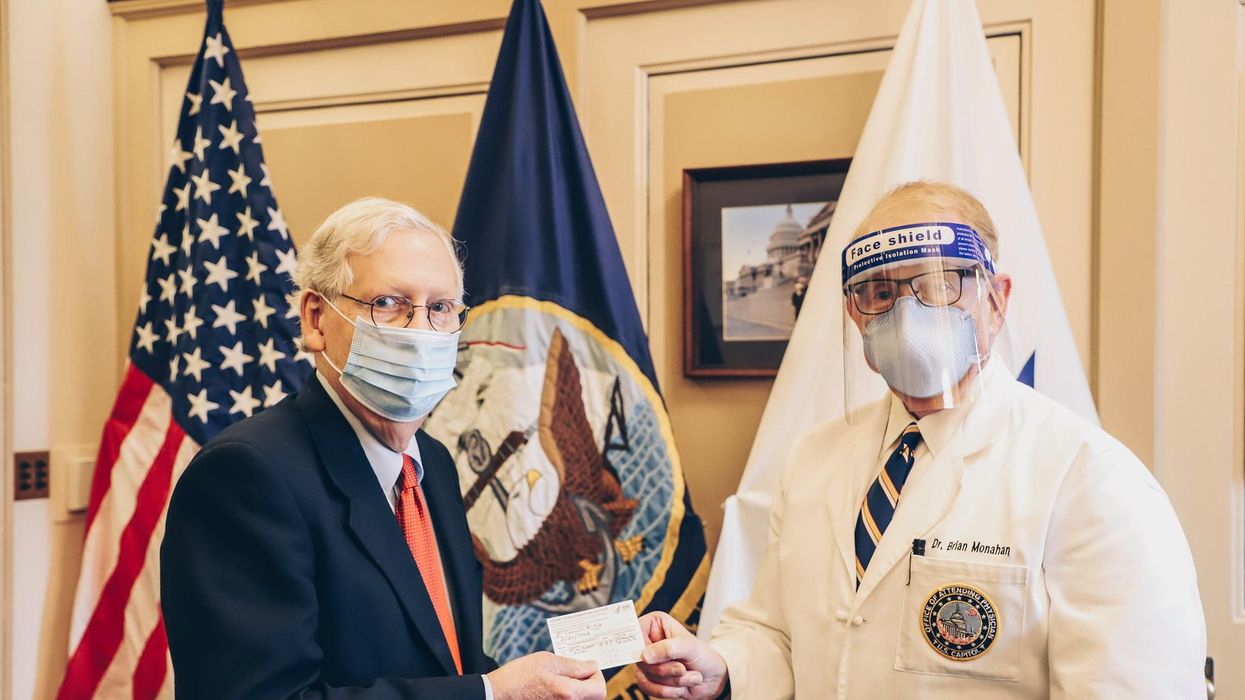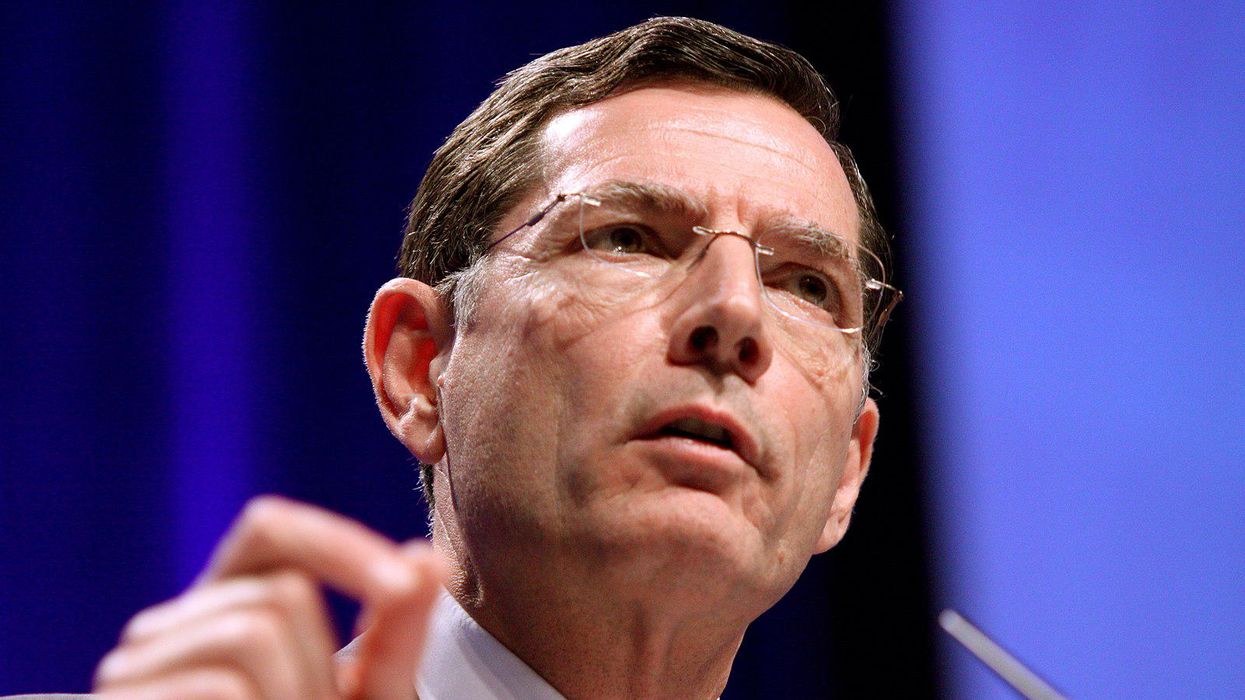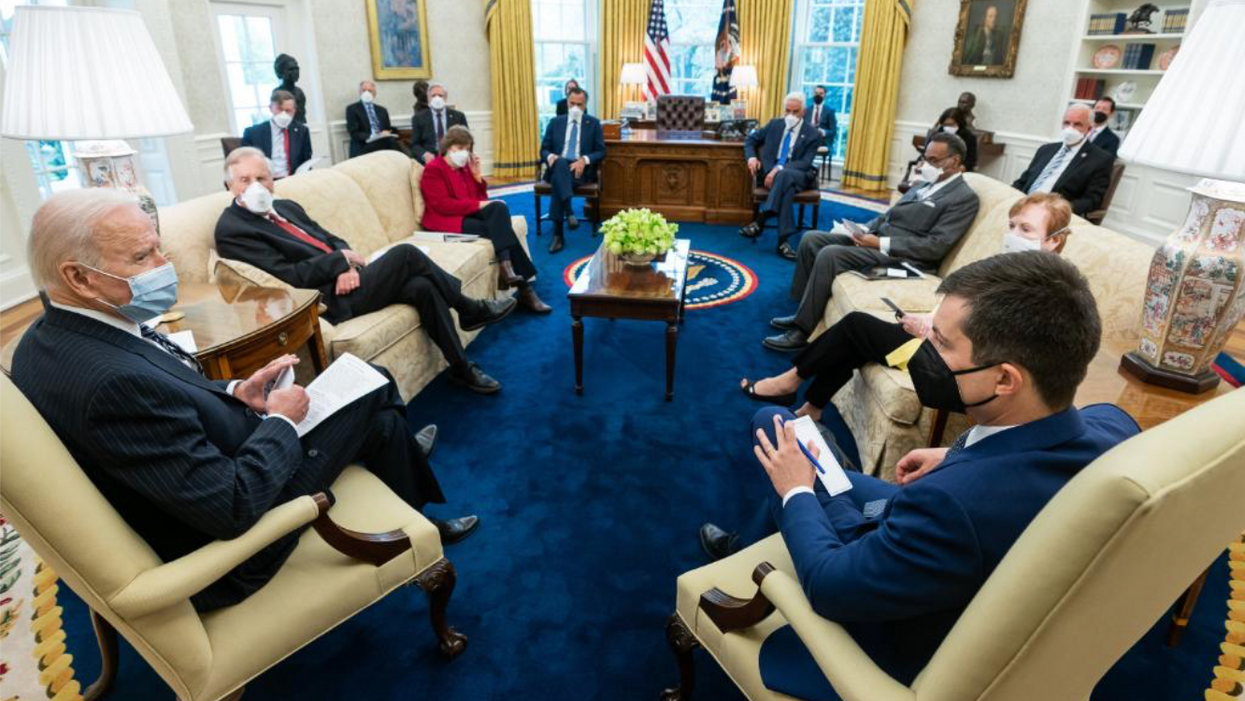Spooked By Negative Polls, Republican Politicians Now Push Vaccination
Reprinted with permission from Daily Kos
Vaccinated Americans are pretty damn upset about the lagging vaccination rates—mainly among white GOP voters—that have led to a nationwide surge in COVID-19 cases, particularly in red states.
Now Senate Republicans want Americans to know who to blame for the low vaccination rates of GOP voters: Democrats.
In case you missed it, Republicans are now pro-vaccine, and the sudden surge of the Delta variant is all President Joe Biden's fault. At least, that's the bridge Senate Republicans and some GOP governors are selling.
Before we go any further, let's be clear about what the GOP's latest gaslighting effort represents: an all-hands-on-deck clean-up on aisle COVID-19.
"When it comes to COVID, there should only be one message to the American people and that should be: Vaccines work," Sen. John Barrasso of Wyoming told reporters Tuesday in the ultimate Johnny-come-lately of pandemic statements. Barrasso then went on to accuse the White House and Centers for Disease Control (CDC) of "medical malpractice" for having chaotic messages on masking, lockdowns, and other coronavirus mitigation efforts. Never mind the fact that the red-state surge is what has landed the country back in masking territory.
Now that Republicans have driven the country back into a COVID-19 ditch, they're planting the keys on President Joe Biden. Indeed, anti-masker and Florida Gov. Ron DeSantis is pinning the Sunshine State's deadly outbreak on Biden's border policies. Sen. Marco Rubio of Florida is suddenly a huge promoter of "VACCINATIONS!" And Minority Leader Mitch McConnell—who's 'perplexed' by the vaccine hesitancy mostly coursing through red America—is now funding radio ads urging residents of Kentucky to get vaccinated. Just eight of the state's more than 120 counties have reported vaccination rates above 50 percent, according to recent CDC data.
Here's one thing we can all be assured of: Mitch McConnell doesn't lavish campaign funds on public health for the sake of public health. His campaign expenditure is a sure sign that Republicans—particularly those in swing states and swing districts—don't like what they are seeing in the polling.
In fact, a newly released Axios-Ipsos Coronavirus Index is offering a window into the motivations behind the GOP's latest blame-shifting campaign. Of the roughly 70 percent of vaccinated Americans, nearly eight in 10 blame unvaccinated Americans for the latest wave of infections. Beyond faulting the unvaccinated, 36 percent of those who are vaccinated blame Donald Trump, 33 percent blame conservative media, and 30 percent blame people from other countries traveling to the United States. In other words, the vaccinated among us overwhelmingly blame Republicans, Trump, and right-wing media for erasing the gains made by the Biden administration's speedy vaccination program. That's exactly why Republicans are so desperate to recast Biden as responsible for the delta uptick.
Congressional Democrats are reportedly seeing something similar in their own polling, according to Washington Post's Greg Sargent. Internal polling by the Democratic Congressional Campaign Committee (DCCC) has shown that "56 percent of likely voters in four dozen battleground districts have serious doubts about Republicans after hearing that they are spreading lies about vaccines to further conspiracy theories." The DCCC is now pushing its candidates to emphasize Republican disinformation on both the vaccine and the January 6 insurrection at their campaign events. In fact, House Speaker Nancy Pelosi has been offering a master class in how to highlight the radicalization of the Republican Party.
The vaccine message is also a natural for Democrats since the public widely trusts Democrats over Republicans on health care issues. The fact that Republicans are now trying flip public perception of GOP extremism on a public health issue is also telling—they simply cannot afford to chart a new course on the Jan. 6 insurrection, since many of their voters now support the terrorist siege and most adamantly believe the election was stolen from Trump.
But Republicans will have to stage a massive cover-up in order to retroactively recast themselves as part of the solution on taming COVID-19 spread. Rewriting history would be a cinch among Trump cultists and avid Fox News watchers. But the people Republicans need to convince of their rationality are actually rational people—those who still believe in facts and science and might be willing to vote Republican if the party wasn't overrun by extremists.
That's going to be a much tougher sell after congressional Republicans led the charge in sowing doubt and confusion about the vaccines. Republicans comparing the White House vaccination campaign to tactics used by the Nazis wasn't exactly helpful. Neither was Republicans smearing localized vaccination campaigns as "door-to-door" spying. Some Republicans hyped the idea that President Biden's vaccination effort was really a ploy to raid people's homes for their Bibles and guns.
As of mid-May, 100 percent of congressional Democrats reported being vaccinated while a meager 45 percent of House Republicans said they had gotten the shot. And last week, House Republicans spent much of the week railing against mask mandates in the lower chamber—even as their own caucus poses a primary threat to the health of everyone else in the Capitol.
Whatever whopper congressional Republicans and GOP governors are trying to sell now, they carried the mantle on hamstringing Biden's extraordinary vaccination push. Based on the polling, vaccinated Americans seem to both know that and resent it.




